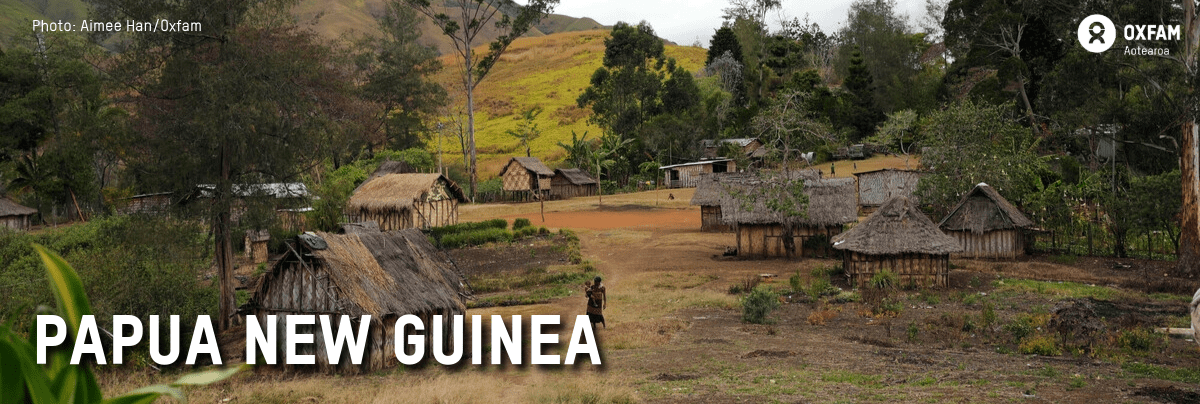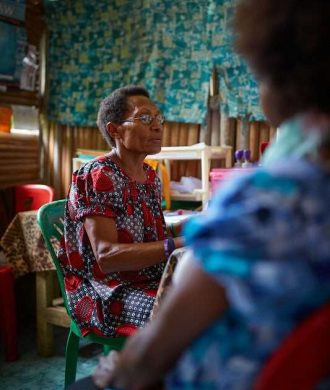
Amongst the country’s towering mountains, deep valleys and tropical forests lie a multitude of communities all with their own languages, cultures and histories. Rural Papua New Guinea is home to 80% of the population, yet these families have seen few benefits from the country’s thriving gas and oil industry due to corruption across political, legal and state institutions.
These barriers combined with challenging physical geography and poor infrastructure, such as roads, have stunted economic development in these rural areas. This makes it hard for locals to sustainably engage in anything more than subsistence farming as often transporting their crops to the larger, lucrative markets in the cities is unaffordable. Unsurprisingly, income inequality in PNG is the highest in the Asia Pacific region. Growth-fuelled inflation is causing further imbalances, meaning basic items are often too expensive for rural farmers.
Statistics from the UNDP Human Development Report and The World Factbook:
Capital: Port Moresby
Population: 7,027,332 (2018)
The largest island in the Pacific
80% of the population live in rural areas
39.9% of the population lives below the basic needs poverty line (2021)
69.2% of the population have no access to limited-standard drinking water (2021)
79.8% have no access to limited-standard sanitation (2021)
82.6% have no access to electricity (2021)
93.7% of employed women are engaged in informal employment like subsistence agriculture and local trading. (2019)
70% of women experience a form of physical and sexual assault in their lifetime, and are five times more likely to be victimised at home than on the street. (2017)

BY SUPPORTING OXFAM YOU WILL
Improve health through improved education and increased access to clean water, new toilets and showers, in rural schools and health facilities.
Construct new water points, tanks, pipes and pumps in villages, schools, and healthcare centres.
Reduce stigmas and improve girls’ attendance at school by providing sanitation and menstrual hygiene education for teachers and students.
Build awareness among government stakeholders about the importance of funding and maintaining water and hygiene infrastructure in schools, health centres and other public spaces.
FLOW Programme
Oxfam’s FLOW programme works with local partners to improve access to basic sanitation and safe water, and promote hygiene practices in rural schools and health facilities in the Eastern Highlands of Papua New Guinea.
About half of Papua New Guinea’s population live in the Highlands (approximately 3 million people) but many of these people have limited or no access to clean water or sanitation services.
By building water tanks, latrines, showers and by promoting good hygiene, we’re helping over 32,000 people stay healthy. In addition, installing private toilets in schools means that teenage girls can continue their education, rather than staying home on days they have their periods.
PAST PROGRAMMES
Oxfam’s HARVEST project worked with local partners to improve the income and lives of over 2,000 families so they could send their kids to school, access decent healthcare and reliably put nutritious food on the table.
This programme helped farming families boost the quality and quantity of their vegetable yields by improving planting and pest-control techniques. This means they can shift from subsistence to market-oriented farming.
With more knowledge, these farmers can then access larger, more profitable markets. We also partnered with two local honey businesses to train and support beekeepers. This doubled the incomes of many families.
As their incomes grew, we helped women and men develop financial management skills to jointly plan, budget, and save for their financial goals. To improve the security of their savings, we also linked them with community-savings providers.






